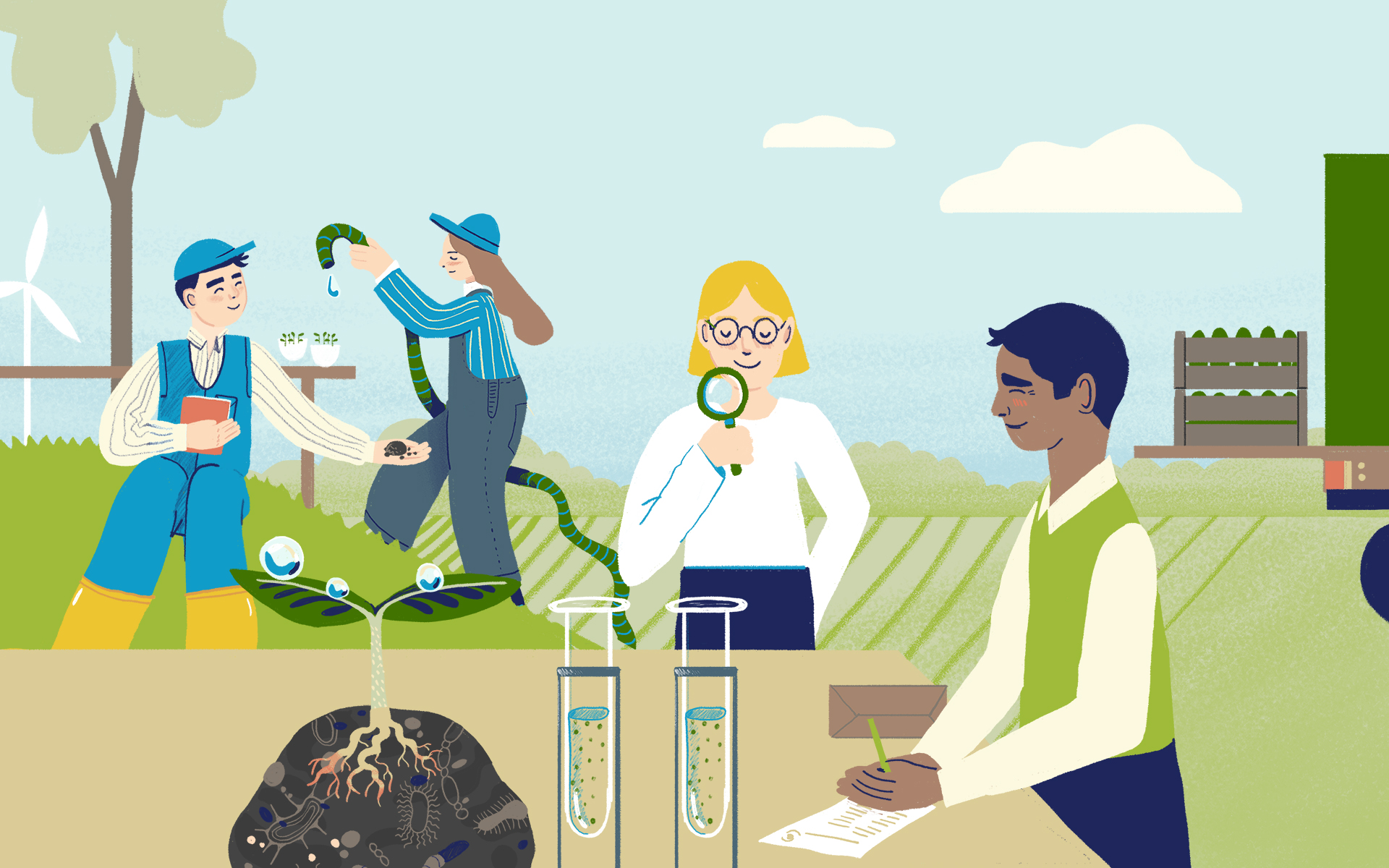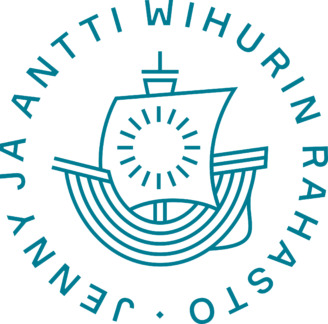RENEW YOUR UNDERSTANDING OF FARMING AND THE SUSTAINABILITY OF FOOD PRODUCTION
The Crash course in regenerative farming is a free and easy-to-use online course aimed at companies in the food system. The course provides insights into how regenerative agriculture can solve sustainability issues in food production.

What?
A free, two-hour online course on regenerative agriculture specifically aimed at companies in the food system. It provides research-based knowledge in an accessible format, and tips on how to promote a regenerative food production.
For whom?
Representatives of companies in the food system. For example, those working in management, product development, procurement, and sustainability.
Why?
Improving the sustainability of the food system requires a deeper understanding of the role of agriculture in the entire value chain. Regenerative agriculture can benefit the entire whole food chain in many ways. It aims to improve soil health, which in turn contributes to crop security and thus to the sustainability of the food system.
Concise and comprehensive information
The Crash course in regenerative farming provides solutions to sustainability issues in the food system and is specifically targeted at companies in the food system.
The course will help you understand how we can use food production to address the major challenges of our time – climate change, water eutrophication, and biodiversity loss – while improving farmers’ livelihoods and society’s food security.
The visually compelling content consists of texts and images, exercises, and videos. The course is structured around four chapters that dive into how continuous soil health improvement offers solutions to sustainability issues in the food system, and how to be part of the change. The course structure is modular and can be completed in any order.
The content has been developed in collaboration with farmers, scientists, and food companies. It is based on knowledge acquired in the Carbon Action- collaboration, established by the Baltic Sea Action Group.
The course is an efficient introduction to the benefits and principles of regenerative agriculture. It is easy to use and inspiring. It provides a basic understanding of regenerative agriculture and can be used both as an introduction to your own team and to open up the topic to your customers.
Petra Gräsbeck, Communications and Sustainability Manager, Anora
Regenerative farming improves the sustainability of the food system
Regenerative agriculture is a collection of farming practices that aim to improve soil health continuously. When the soil in the field is healthy, it produces well and more reliably, even under varying conditions.
Good soil health reduces dependence on external inputs, which impacts the farmer’s economy in the long run. Reliable yields are also essential for the security of supply.
Taking care of soil health is an investment that supports the environment, biodiversity, and climate change mitigation. Healthy soils retain water and nutrients, thus reducing nutrient run-offs into our waters.
Regenerative farming benefits the farmer, the food system, and our society.

Contact us

Julia Kajas
Planner, Regenerative Agriculture and Communications